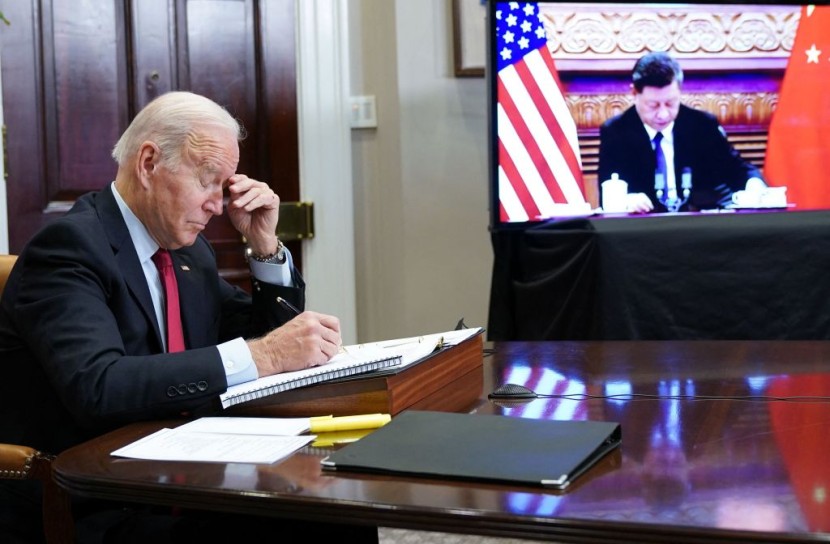
During a virtual meeting on Monday night, President Joe Biden and Chinese President Xi Jinping discussed tensions and deepening disputes over Taiwan.
Despite escalating tensions with China over Taiwan, the US has restated its "rock-solid" support for the self-ruled island. Although the People's Republic of China (PRC) has never ruled Taiwan, it claims sovereignty over the island, which it regards as part of its territory under the "one China" principle.
Biden reaffirmed US' commitment to Taiwan
Last month, Biden surprised onlookers when he claimed the US was "committed" to protecting Taiwan from a Chinese military strike, Newsweek via MSN reported. Soon later, the White House pulled back the statements. During a news conference prior to the Biden-Xi summit, a senior administration official emphasized that US policy on Taiwan had been constant.
The White House said that at the conclusion of the three-hour virtual summit, President Biden reaffirmed the United States' commitment to its own "one China" policy, which is distinct from China's "principle" policy and is guided by the Taiwan Relations Act, the three Joint Communiques, and the Six Assurances.
Taiwan, or the Republic of China, has been self-governing since 1949, following a split at the end of the Chinese Civil War. Following the normalization of ties with China, formal diplomatic contacts between the United States and Taiwan were severed in 1979. Since then, though, Washington and Taipei have maintained a strong informal relationship.
China wants to "reunify" Taiwan and has never ruled out a military invasion of the democratic island. The prospect of American military participation in the event of a conflict has remained a particularly complicated matter in US-Chinese relations. "Strategic ambiguity" refers to the purposeful opacity surrounding the American reaction.
Read Also: Russia Starts Delivering Advanced Defense Missile Supplies To India Despite US Sanctions Risk
US, China agree to cooperate on several issues
Per SCMP, when they met for a virtual summit on Tuesday, Chinese President Xi Jinping and his US colleague Joe Biden both emphasized the significance of cooperation. While there is no full record of the meeting, which lasted over three hours and included a wide variety of issues, the Chinese foreign ministry and the White House have provided readouts summarizing the events.
According to a White House statement, Biden expressed concern over China's "practices in Xinjiang, Tibet, and Hong Kong, as well as human rights more broadly." Xi again emphasized the significance of "respect" between the US and China, but he did not specifically address the Xinjiang, Tibet, or Hong Kong concerns.
"Although it's not as good as a face-to-face meeting. I'm very happy to see my old friend," Xi said as the summit got underway, as per 7News.
Given the deteriorating ties between Washington and Beijing and the reality, acknowledged by administration officials, that managing the US relationship with China will amount to Biden's most important international objective, it was an auspicious start to some of the most important talks of Biden's presidency.
Biden also restated his commitment to working with allies and partners, including Australia, to "stand up for" the United States' "interests and values."
Biden said the US government intended to "ensure the rules of the road for the twenty-first century promote an international system that is free, open, and fair," citing the need to unite with Australia and other international partners to take on the problems of our time.
Related Article : Joe Biden, Xi Jinping Virtual Meeting: US To Focus More on Infrastructure Despite Questions Swirling Over COVID-19 Origins and Hunter
© 2025 HNGN, All rights reserved. Do not reproduce without permission.








